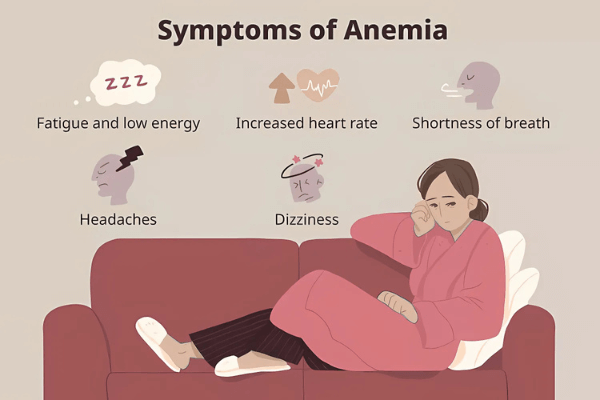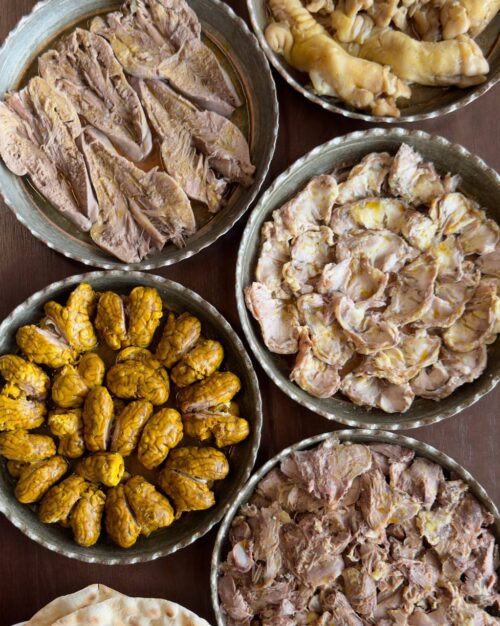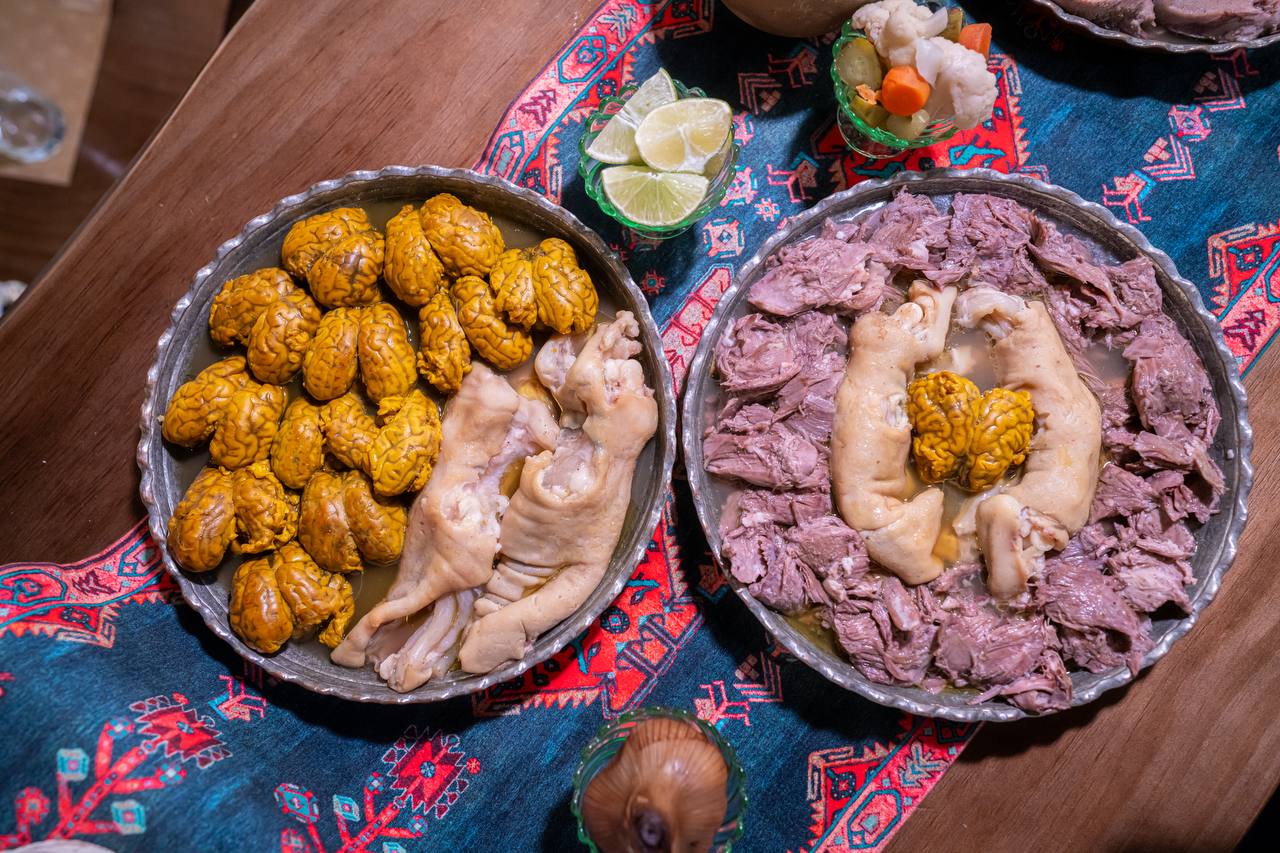🥣 Kaleh Pacheh & Anemia: A Hidden Nutritional Gem
If you struggle with low iron levels, fatigue, or even diagnosed anemia, you’ve probably been advised to take iron supplements. But did you know there’s a traditional Persian dish that naturally boosts iron and other critical nutrients for red blood cell health?
Let’s talk about Kaleh Pacheh, a slow-cooked delicacy made from lamb head and trotters, which has been a powerhouse of nutrition for generations especially for those dealing with anemia.

🩸 What Makes Kaleh Pacheh Ideal for Anemia?
1️⃣ High in Easily Absorbable Iron (Heme Iron)
Unlike plant-based iron (non-heme), animal-sourced iron like in lamb meat, tongue, and organ parts (brain, eyes) is heme iron, which your body absorbs much more efficiently — up to 35% better absorption rate.
2️⃣ Rich Source of Vitamin B12
People with anemia, especially pernicious anemia, often have low Vitamin B12 levels. Kaleh Pacheh is naturally rich in B12, which is essential for:
Healthy red blood cell production
Improved energy and reduced fatigue
Better cognitive function
3️⃣ Packed with Collagen & Gelatin
An overlooked benefit: the collagen and gelatin from lamb bones and trotters support:
Gut health, improving nutrient absorption
Skin elasticity and joint health
Overall immune system support, crucial for people recovering from anemia
4️⃣ Contains Folate (Vitamin B9)
Lamb brain and marrow contain folate, another key nutrient that prevents megaloblastic anemia and supports DNA synthesis.

🌟 Extra Nutrients You Won’t Find in Supplements
| Nutrient | Source in Kaleh Pacheh | Benefits |
|---|---|---|
| Zinc | Tongue, Brain | Boosts immune system, supports red blood cell function |
| Phosphorus | Bone Broth | Vital for oxygen transport and energy |
| Protein | All cuts | Prevents muscle wasting, common in chronic anemia |
🥄 Traditional Wisdom Backed by Modern Science
In Persian culture, Kaleh Pacheh has always been regarded as a recovery meal — given to postpartum women, those recovering from surgery, or anyone suffering from weakness. Now, modern research confirms that slow-cooked organ meats and bone broth deliver bioavailable nutrients critical for fighting anemia naturally.

✅ Who Should Include Kaleh Pacheh in Their Diet?
Women with heavy menstrual cycles
Athletes prone to iron deficiency
People recovering from surgery or chronic illness
Individuals with pernicious anemia or B12 deficiency
Anyone feeling chronically tired without explanation
⚠️ Who Should Be Careful?
While Kaleh Pacheh is nutrient-dense, it can be high in cholesterol. People with cardiovascular issues should consume it in moderation and consult a doctor.
If you’re in Toronto or Richmond Hill, visit Bareh Sefid and try the most authentic Kaleh Pacheh — your body will thank you!



Add a Comment